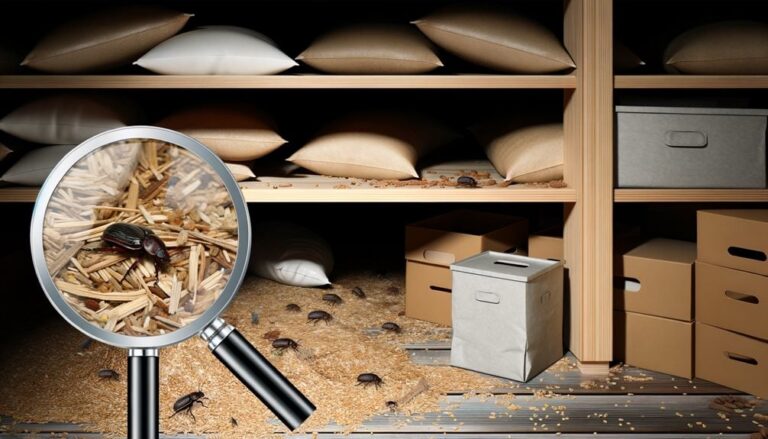Key Stage 4: The All-in-One Handbook for the Students and Their Guardians
Key Stage 4 is a significant phase in the British educational system, typically covering students between the ages of 14 and 16.
At Lady Evelyn Independent School, this stage provides an essential platform for students to deepen their understanding of core subjects while exploring a variety of optional subjects that align with their interests and future career paths.
During Key Stage 4, pupils undertake General Certificate of homeschool Secondary school Education (GCSE) examinations, which are crucial for their academic progression and future career opportunities.
The curriculum is designed to cover core subjects such as Mathematics, English, and Science and introduce additional subjects that spark interest and amaze students with the breadth of knowledge available.
An essential aspect of Key Stage 4 at Lady Evelyn Independent School is the personalised approach to education.
Small class sizes are integral to this process, allowing teachers to provide individual attention and tailor instruction to meet each student’s specific needs and potential.
This approach is complemented by the expertise of our dedicated staff, who strive to create a supportive and enriching environment that encourages students to pursue their ambitions.
Furthermore, Key Stage 4 serves as a critical stepping-stone, preparing students for higher education and the complexities of the modern world.
The aim is to equip students with strong foundational skills, fostering a sense of independence and confidence as they prepare for Sixth Form and beyond.
Curriculum Description And Program Structure
KS4 combines both the curriculum subjects, which are mandatory for all learners, with the elective subjects, which can be customised according to learner preferences.
Core Subjects in KS4
The core subjects of the KS4 curriculum generally consist of the following: Mathematics, English Language, Literature, and Science (usually an integrated science but can also be broken down into Biology, Chemistry, and Physics).
These subjects are compulsory as they form the essential knowledge and skills that can be useful in daily activities and in further studies.
Optional Subjects and Electives
Apart from the core subjects, students are allowed to select optional subjects. These may include:
- Humanities (e.g. History, Geography);
- Arts (e.g. Art & Design, Music);
- Technology (e.g. Information and Communication Technology, Design and Technology);
- Modern Foreign Languages (e.g. French, Spanish);
- Physical Education.
Choosing the right combination of subjects is essential because it may affect one’s educational and career progression later in life.
Understanding GCSEs
What are GCSEs?
GCSEs, also known as General Certificates of Secondary Education, are the examinations that students are awarded after KS4. They are very important in the United Kingdom’s education system as the results often dictate an individual’s progress to higher studies or job opportunities.
How GCSEs Fit into KS4
KS4 is essentially the rehearsal stage before the main performance. These are the two years during which students do coursework, practicals, and other exam preparations that will lead to these examinations.
Importance of GCSE Results
GCSE results can be a stepping stone to A levels, vocational courses, and even apprenticeships. This is most common, however, among further education prospects and employers, which means that during KS4, this is of great concern and consideration.
Assessment and Exams
Internally Assessing During KS4
During the timescale of KS4, learners take internal assessments such as Mock examinations, quizzes, and assignments, which are intended to assist in monitoring and evaluating progress and, further, assessment for accountability.
The Role of Final Exams in the Overall Assessment of GCSEs.
The final exams come at the end of year 11 and test everything taught throughout KS4. Most of the time, these exams determine the final GCSE grade.
The Role of Coursework in Determining Final Grade
Coursework is sometimes added to the performance grade in formal examinations. This aspect enables learners to gradually practice and build their skills over time instead of just examining.
Subject Choices and Their Importance
Subject Selection Steps, And How To Do It Right
The selection of subjects in KS4 poses challenges. Finding how a personal passion may be linked to professional prospects is critical. For instance, engineering students may take up more science and mathematics subjects.
Weighing Career Prospects Against Subject Preference
While considering future job opportunities is a major factor in choosing a subject, students should also be encouraged to take up subjects they are interested in. Subjects that students feel passionate about affect their outcomes positively.
Core Subjects in Detail Mathematics
Mathematics is one of the core pillars of the KS4 syllabus. Students study algebra, geometry, statistics, etc., and acquire problem-solving skills essential in real life and further studies.
English Language and Literature
The English Subject exposes students to many texts and enhances their reading skills, comprehension, and the ability to express thoughts. These are core skills required to engage effectively and think critically.
Science
Science in KS4 consists of three main areas: biology, Chemistry, and Physics. Students are involved in experiments and practical work, which underpin theoretical learning.
Optional Subjects and Electives Humanities
Humanities subjects such as History and Geography help students understand what happened in ancient days and the present world. These subjects induce reasoning and a broad perspective of the world.
Arts and Design
Education does involve a lot of imagination. Some subjects, such as art and design, aim to facilitate imagination and could translate into more creative industries.
Physical Education
Physical Education safeguards students’ physical fitness and well-being while helping the learners cope with stress and remain fit, especially during the highly demanding academic seasons of KS4.
Modern Foreign Languages:
Learning a foreign language expands students’ horizons and enhances their communication skills, which may greatly help them in the modern international occupational field.
Support and Resources for KS4
Support Provided By the School
Every school has its forms of support, such as help from teachers, studying with someone else, and having school tools such as books and the Internet.
ICT and Other Study Aids
The revision websites and software assist students in preparing for their GSCE exams by providing revision materials, sample tests, and online learning opportunities.
How to Prepare for Exams and Study Effectively
Revising includes using a study plan, preparing cards with brief information, and working on sample questions. Regular breaks and an effective organisational structure are also crucial.
Combining Studies with Well-being
De-stressing Methods
It is expected to experience stress during KS4. Some stress-handling techniques include mindfulness, exercising regularly, and maintaining a proper sleep routine.
Why Widening Participation is Encouraged
Academic work is one of many aspects that an individual is expected to work on. Other tasks that need to be achieved include social interaction with peers, discovering interests…
How to ensure Work-Life Balance
Separate school work from non-school activities. In addition to studies, students need to ensure they have time for their hobbies, relaxation, and going out with friends.
Parental Contribution through KS4: Parents seeking assistance for their children
Parental contribution during KS4 is highly emphasised, as parents assist children in various ways, such as creating study plans or a conducive study environment.
The Importance of Teacher Contact
Keeping in touch with their teachers helps the parents to know what their child is doing and what they need to improve on.
Fostering Support but Also Building Independence
As much as self-study is encouraged, it is also essential during this period (KS4) that personal skills grow. This involves encouraging the students to take ownership of their studies.
Future Directions after KS4
Post KS4 Options
Scholars may opt to progress their studies through A Levels, postgraduate education, vocational courses, a paid job, or even apprenticeships after KS4. Before selecting a path, students should evaluate their interests and career objectives.
Moving to A levels, Vocational Education and Training (VET) or Apprenticeship
This option requires a lot of planning and thought. A-levels are clearly more academic and intended for those proceeding to university, while vocational education and training and apprenticeships lead to skills required in the job market.
Some common problems met with at KS4
Exam stress
Expectations about students’ examination performance can be high. Students must know how to prioritise targets within comprehension and seek assistance when needed.
Social Factors and Peer Relations
Social skills development, especially relationships, is trying during KS4. Establishing good relations and asking for assistance from friends and relatives will help.
Time Management Problems
Good time management is essential for coordinating school, sporting, and personal leisure activities. Students should devise schedules that enable them to manage time efficiently.
Tips That Can Lead To Success In KS4
Setting Practicable Tasks
In setting their targets, the students should consider practical targets they can rely on for the rest of KS4 to keep them on task and hard working.
Forming a Study Schedule
Forming a study schedule contributes positively in the sense that it allows students to be in control of their revisions and assignments. It is necessary to look for a schedule and follow it.
Letting Others Know of Any Concerns
Students should always seek assistance for difficulties related to studies or emotional problems. Teachers, counsellors, and family provide these resources.
Conclusion
Key Stage 4 can be tagged as a changing bucket in any student’s academic history. It is a season of development, knowledge acquisition, and self-preparation for what lies ahead. However, if students make sensible decisions, are systematic, and seek help whenever necessary, they will survive in KS4 and prepare for a favourable future.
FAQs about Key Stage 4
What is Key Stage 4?
Key Stage 4 is a crucial period in the British education system. It encompasses the final two years of compulsory secondary education for students aged 14 to 16.
During Key Stage 4, students typically study for their General Certificate of Secondary Education (GCSE) exams, essential for their future career paths.
What subjects are included in Key Stage 4?
In Key Stage 4, students must study core subjects such as English, Mathematics, and Science.
Additionally, they can choose from various optional subjects depending on their interests and career goals.
This variety allows students to personalise their learning and prepare for specific future career paths.
How does Key Stage 4 prepare students for their future?
Key Stage 4 prepares students by equipping them with valuable qualifications via GCSE exams, which employers and educational institutions worldwide recognise.
The coursework and examinations at this stage foster independent learning, critical thinking, and problem-solving skills essential for workplaces and higher education.
What role do teachers play during Key Stage 4?
Teachers and staff at Lady Evelyn Independent School play a pivotal role in Key Stage 4 by providing expert guidance, managing student progress, and delivering engaging lessons.
Our dedicated staff ensure that each student receives the support and resources necessary to achieve their academic and professional goals.
Why is Key Stage 4 important at Lady Evelyn Independent School?
Key Stage 4 at Lady Evelyn Independent School is vital as it represents the culmination of years of educational development, setting the foundation for students’ entry into further education or their preferred career paths.
Our specialised online platform, combined with small class sizes and expert staff, ensures that every student is well-prepared to pursue their ambitions with confidence and capability.







